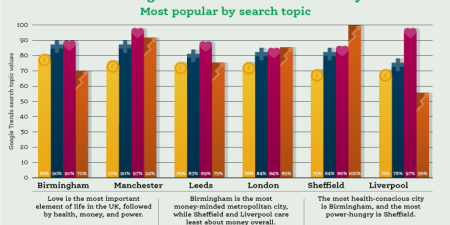David Mouko Elizaphan Omaanya is a seasoned business leader driven by a passion for leveraging the latest technology to create positive business outcomes that change lives. With extensive experience of both traditional banking and fintech, Elizaphan Mouko has served as director of several companies in the UK, UAE, Kenya, and Mauritius, showcasing his ability to navigate diverse business landscapes while driving growth.
This article will look at the ever-increasing role of financial technology (fintech) in the banking and financial services industry, exploring fintech’s potential to make banking easier and more accessible, affordable, and inclusive.
The term ‘fintech’ arose sometime around 2005, describing technology designed to improve and automate financial services. Today, it is also widely associated with start-up enterprises launched with the mission of disrupting the traditional banking system.
Fintech companies are transforming virtually every aspect of traditional money management, making financial services faster, better, and more accessible than ever before, enabling individuals, business owners, and companies to access innovative financial products that have a transformative impact on people’s lives.
Today, trips to the bank are becoming an increasing rarity, with people all over the world saving, borrowing, investing, and transferring money via digital channels and mobile phone services. Traditionally, banks had physical branches, presenting a collection of financial products all under one roof, from checking accounts to personal savings to investment products and wealth management. However, over the years, banks have increased their digital offerings, enabling customers to check their balance, complete transactions, apply for loans etc. online without needing to visit bricks-and-mortar locations. Today, banks are primarily used for cash deposits or to access ATMs. However, running physical locations comes at a price, the cost of which is generally passed on to the customer.
The first internet-only bank was launched in 1995, enabling consumers to manage their money in a more efficient and cost-effective way, albeit with a much more restrictive model than seen today. Customers who took advantage of digital banking were rewarded with attractive interest rates on deposit accounts and reduced service fees due to the lack of overheads.
For a long time, consumers tolerated a lack of technology in the banking system. However, with fintech on the rise, many banks are struggling to keep pace in terms of developing the innovative and exciting new financial products customers crave. The question is, will fintech eventually usurp the traditional banking system, or can the two co-exist and eventually join forces?
According to data published by Statista, between 2018 and 2021 the number of fintech companies across the Europe, Middle East, and Africa region almost tripled, with $255 billion invested globally in fintech start-ups through venture capital funds in 2018 alone. Research from McKinsey suggests that fintech is an important driver of growth across the entire global economy, having created 134,000 jobs across Europe as fintechs began scaling up their workforces while traditional banks simultaneously started reducing theirs.
Although fintech was already gaining traction with consumers long before the arrival of COVID-19, the pandemic undeniably accelerated this trend. Data from McKinsey reveals that during the first few months of the pandemic, use of mobile banking channels increased by between 20% and 50%, with experts predicting that interest in mobile banking is unlikely to waiver anytime soon.
Fintech is an innovative, customer-centric concept that comes with the ability to streamline complex financial processes, making them simple and straightforward for customers and enabling them to access all kinds of financial products and banking facilities. Financial software development companies provide solutions using leaner operating models, providing scope to replace outdated legacy banking systems with far more sophisticated alternatives.
Incorporating advanced technologies such as AI, big data, and cloud computing, fintech presents clients with a unique and comfortable experience, focusing on personalization, relevance, seamless delivery, speed, and efficiency. Fintech is the ideal solution for the banking industry, facilitating the streamlining of complex financial processes while increasing accessibility.
Curbed by regulatory frameworks, traditional banks are struggling to embrace new technologies fast enough to keep up with consumer demands, rapidly finding themselves outpaced by fintech companies in terms of developing exciting new financial products. Fintech companies, on the other hand, are not confined by such tight regulation, which is why so many fintech start-ups have started appearing. Without the limitation of strict regulation, fintech firms can adapt and pivot quickly without the need to adhere to strict guidelines in the same way as banks. It is therefore easier for fintech companies to adapt to client requirements, working faster in this high-risk, high-reward industry.
Of course, banks have their advantages. Many have been in existence for many years, having built trust with consumers, and boast huge monetary deposits compared with fintech companies. However, to stay relevant, the entire industry is coming under pressure to undergo rapid transformation. Many experts suggest that the future of the financial services sector will hinge on the ability of banks and fintechs to work together, making financial processes and systems faster and easier to access and enabling consumers to utilize a comprehensive suite of banking services from anywhere at any time.









